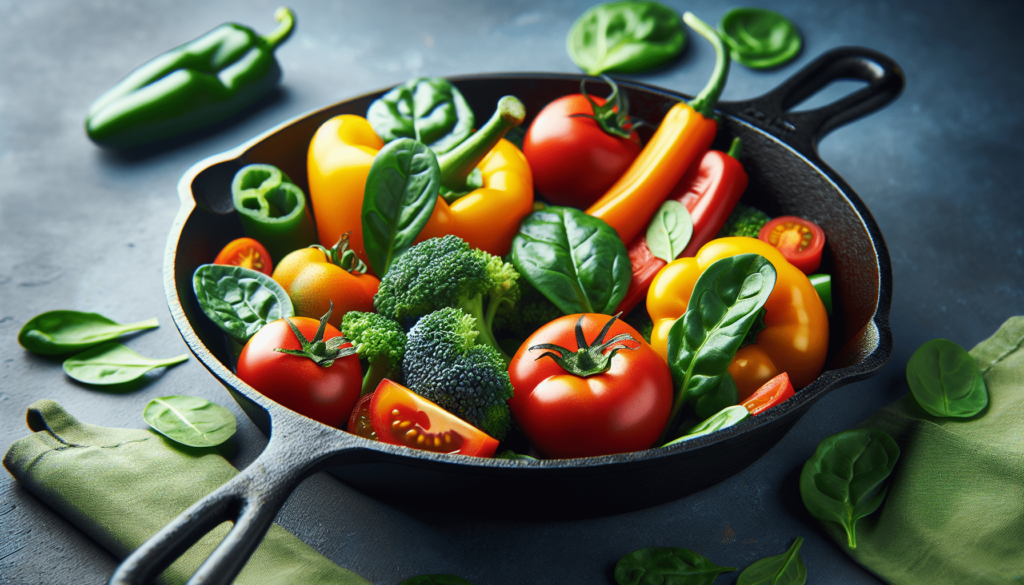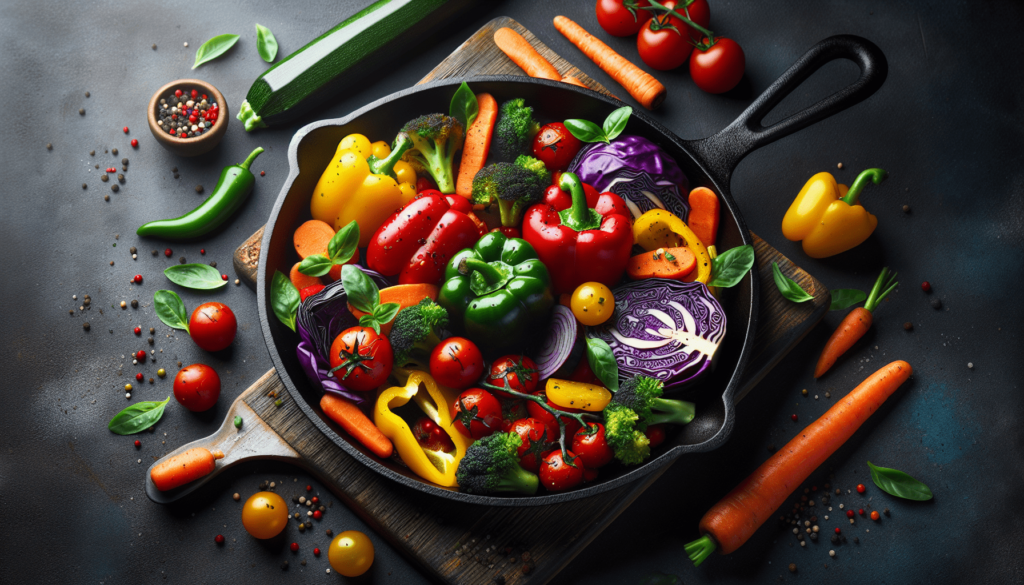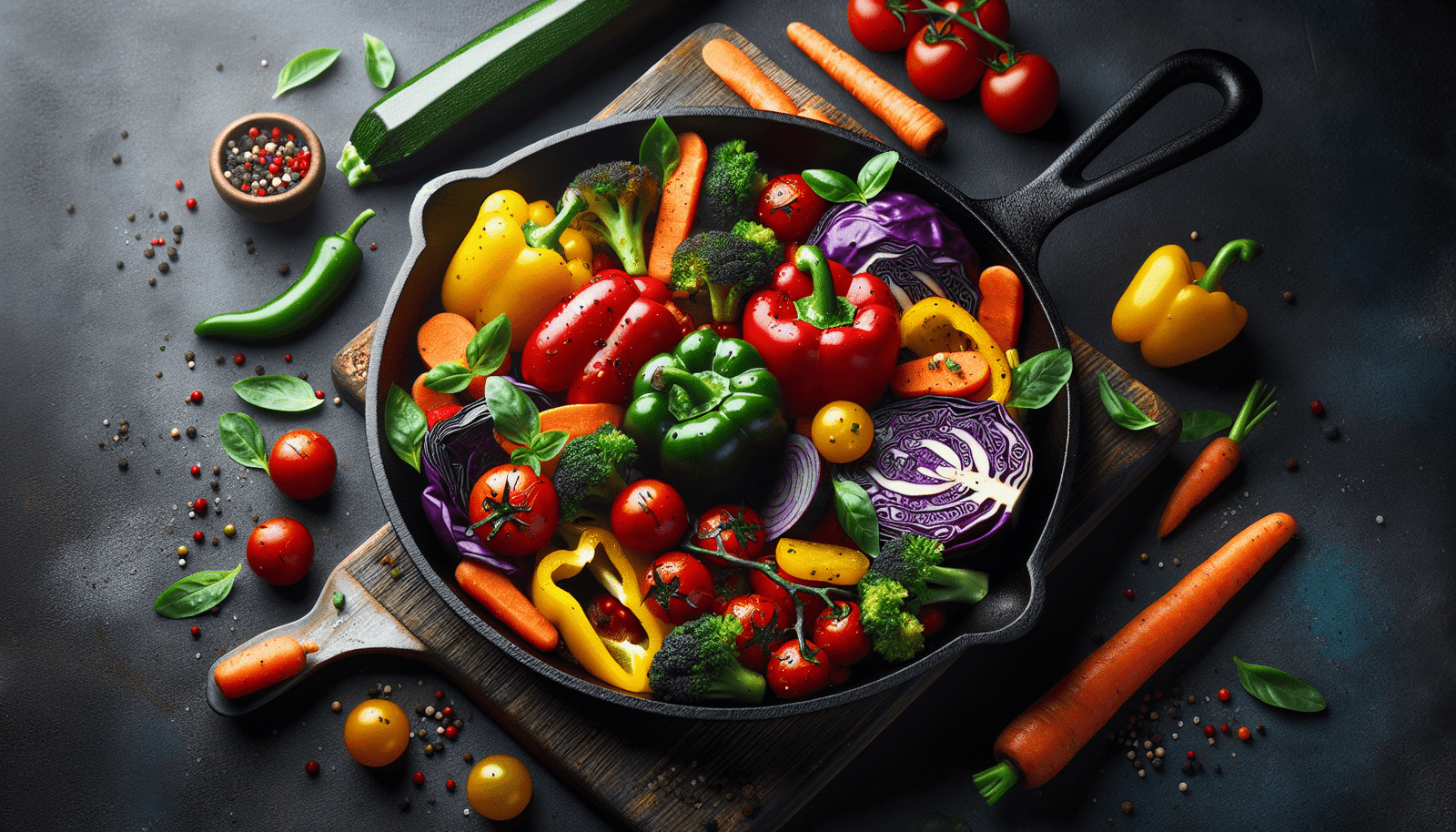Welcome to an article all about the importance of iron in your diet! Iron is a vital mineral that plays a crucial role in maintaining overall health and well-being. From carrying oxygen throughout your body to supporting energy levels, iron is essential for various bodily functions. In this article, you will learn why iron is so important, how to ensure you are getting enough in your diet, and the potential consequences of iron deficiency. Let’s dive in and explore the significance of iron for your health and vitality. Have you ever wondered why iron is so essential for your body? Iron is a crucial mineral that plays a vital role in various bodily functions. From oxygen transport to energy production, iron is necessary for your overall health and well-being. In this article, we will delve into the importance of iron in your diet and how you can ensure you are getting an adequate amount of this essential mineral.

Understanding Iron
Iron is a mineral that is found in every cell of the body. It is an essential component of hemoglobin, a protein in red blood cells that carries oxygen from the lungs to the rest of the body. Iron is also vital for many other functions, including oxygen transport, energy production, and DNA synthesis. Without enough iron, your body cannot produce enough healthy red blood cells, leading to iron deficiency anemia.
How Much Iron Do You Need?
The recommended daily allowance (RDA) for iron varies depending on your age, sex, and whether you are pregnant or breastfeeding. The RDA for iron is as follows:
- Adult men: 8 mg
- Adult women: 18 mg
- Pregnant women: 27 mg
- Breastfeeding women: 9 mg
It’s essential to get the right amount of iron in your diet to prevent iron deficiency anemia and support your overall health.
Sources of Iron
Iron can be found in two forms: heme iron and non-heme iron. Heme iron is found in animal products and is more easily absorbed by the body. Sources of heme iron include red meat, poultry, and fish. Non-heme iron, on the other hand, is found in plant-based foods and is not as readily absorbed. Sources of non-heme iron include beans, lentils, spinach, and fortified cereals.
Best Food Sources of Iron
Here are some of the best food sources of iron:
| Food | Iron Content (mg) |
|---|---|
| Beef liver | 5.8 mg per 3 oz |
| Oysters | 3.0 mg per 6 medium |
| Chicken | 1.0 mg per 3 oz |
| Turkey | 0.9 mg per 3 oz |
| Lentils | 3.3 mg per 1 cup |
| Spinach | 3.2 mg per 1 cup |
| Tofu | 2.1 mg per 3 oz |
| Fortified cereals | Varies |
Including a variety of iron-rich foods in your diet can help ensure you are getting an adequate amount of this essential mineral.

Iron Absorption
Your body’s ability to absorb iron is influenced by several factors. Vitamin C enhances iron absorption, while calcium, tannins, and certain medications can inhibit iron absorption. Cooking in cast-iron cookware can also increase the iron content of food.
Enhancing Iron Absorption
To enhance iron absorption, try the following:
- Pair iron-rich foods with foods high in vitamin C, like citrus fruits, strawberries, and bell peppers.
- Avoid consuming calcium-rich foods at the same time as iron-rich foods.
- Cook in cast-iron cookware to increase the iron content of your food.
By being mindful of these factors, you can maximize your body’s ability to absorb iron from your diet.
Signs of Iron Deficiency
Iron deficiency is one of the most common mineral deficiencies worldwide. Symptoms of iron deficiency can vary from mild to severe and may include fatigue, weakness, pale skin, shortness of breath, dizziness, and headaches.
Who is at Risk?
Certain groups of people are at a higher risk of iron deficiency, including:
- Pregnant women
- Women of childbearing age
- Infants and young children
- Vegetarians and vegans
- Athletes and active individuals
If you are experiencing symptoms of iron deficiency, it’s essential to consult with your healthcare provider to determine the best course of action.
Iron Supplements
Iron supplements may be necessary for individuals who are unable to get enough iron from their diet alone. There are several types of iron supplements available, including ferrous sulfate, ferrous gluconate, and ferrous fumarate. It’s important to consult with a healthcare provider before starting any iron supplements to determine the appropriate dosage and form of iron for your needs.
Side Effects of Iron Supplements
Iron supplements can cause side effects, including constipation, nausea, and stomach upset. To minimize side effects, it’s best to take iron supplements with food and avoid taking them with calcium or antacids, which can inhibit iron absorption.
Before starting any iron supplements, consult with a healthcare provider to ensure you are getting the right amount of iron to meet your needs without experiencing any adverse effects.
Conclusion
Iron is a crucial mineral that plays a vital role in various bodily functions. From oxygen transport to energy production, iron is essential for your overall health and well-being. By including a variety of iron-rich foods in your diet and being mindful of factors that influence iron absorption, you can ensure you are getting an adequate amount of this essential mineral. If you are experiencing symptoms of iron deficiency, consult with your healthcare provider to determine the best course of action. Remember, iron is key to a healthy and thriving body, so make sure you are giving it the attention it deserves.

